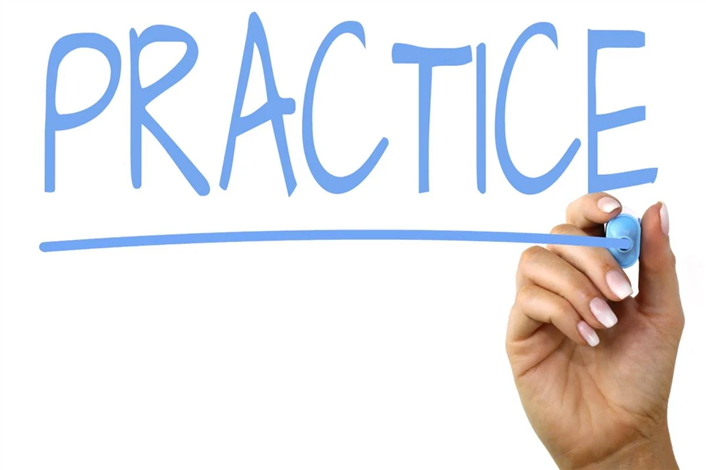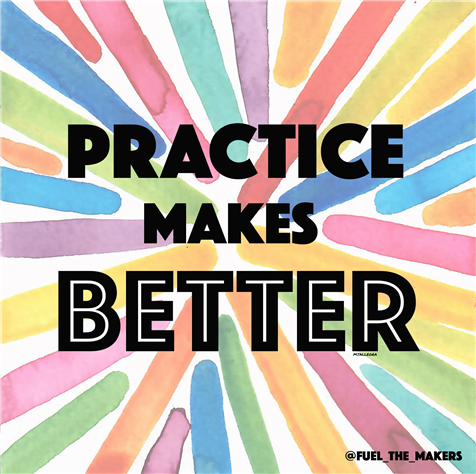FAQ: About Me edition
Thursday, May 26, 2022 by Nathaniel Thompson | Personal
As a private teacher, one of the most important things to me is having a strong relationship with my students and colleagues. When I visit schools or meet new musicians, I tend to have a couple of questions and topics that come up frequently. I thought to myself, why not get them out of the way for anyone looking to get to know me better?
Thus, I present to you:
FAQ: About Me edition!
Q: How tall are you?
A: I am six feet and five inches tall. Yes it's very tall. No I don't play basketball (though I did play little league baseball as a kid).
Q: What's your favorite kind of music?
A: The truth is I am terrible at favorites. Doubly so for things I like, so my standard reply for this question is "Anything good". I like rock, jazz, folk, rap, pop, EDM, celtic, classical, contemporary, broadway, polka, mariachi, ambient, lo-fi, funk, disco... I could go on.
I also understand this answer is not helpful, so here are some (not all) of the artists I enjoy currently:
Alt-J, Avi Kaplan, Billie Eilish, Bobby McFerrin, Ella Fitzgerald, Splatoon soundtrack, The Fearless Flyers, Glass Animals, I'm With Her, Ingrid Michaelson, Jacob Collier, Kero Kero Bonito, Moonchild, Susan Graham, The Noisy Freaks, Savant, Hamilton Soundtrack, Owl City, Panic! At the Disco, Paramore, Renee Fleming, Pentatonix, Perfume, Peter Paul & Mary, Cowboy Bebop soundtrack, Sligo Rags, System of a Down, twenty one pilots, Tyler The Creator, Born Without Bones, Caravan Palance, Haywire, Raffi, Runescape classic soundtrack, Kendrick Lamar, Portugal The Man, LiSA, Hollow Knight Soundtrack, Neon Trees, Sean Angus Watson, Dietrich Fisher Dieskau.
Hopefully that gives you a decent understanding of my music taste.
Q: What's your favorite song to sing?
A: Again, a question I answer horribly. I'll say that I like to sing music with an intent and a feeling. I'd say that usually comes out for me the most with Broadway, Classical Art Song, Punk/Alt rock, Folk music, or pop, so here's some current favs from those categories:
Broadway: You'll Be Back (Hamilton)
Classical Art Song: The Michelangelo Lieder (Hugo Wolf)
Rock: Aerials (SOAD), Tell Me How (Paramore)
Folk: Quarter Past Four (Avi Kaplan), If I Had My Way (Peter, Paul & Mary)
Pop: Animal (Neon Trees), Death of a Bachelor (Panic! At the Disco)
Q: What's your favorite show you've performed in?
A: Ragtime. I played Father. It's a very dark role, but the show's message is so important. It was a great experience to be part of.
Q: What's your favorite food?
A: Biscuits and Gravy. I love to make my own at home. Cooking is fun, and very rewarding, though I'll never measure up to my Mom's.
Q: Why do you teach classical singing? Can I learn different singing styles?
A: The classical style of singing is all about unlocking the full potential of one's voice. Singing classically fosters healthy, sustainable singing, and uses the full extent of a voice's range, timbre, and volume. Opera is called "the olympics of singing" for a reason. So, for singers interested in other styles, start with classical technique, and you can apply what you learn to any kind of singing you want! (Beyoncé took classical singing lessons).
Did I miss anything? Let me know if you have any other questions about me, and I'll make a part 2 sometime!
Top 5 Practice Tips for Beginners!
Monday, May 16, 2022 by Nathaniel Thompson | Tips & Tricks
We all know about it. We all know we should do it. But, practicing is hard! And sometimes it feels boring, or pointless, or even too complicated to begin. If you struggle with practicing, allow me to offer 5 quick tips to improve your practice game instantly!
1. Practice practicing.
Practice is a skill in itself that takes time to learn and develop, just like music. Devote time to learning new exercises to overcome technical challenges. Ask teachers and colleagues for tips and tricks. Take note of the things that help you, and what doesn't.
One of the best things I've learned to do is keep a practice journal! In it, you should document when you are practicing (morning or night? How long?), what you are doing before and after practice (eating, sleeping, studying, running?), how you feel emotionally that day (excited, frustrated, stressed?), and any other details of note (water intake, diet, sleep schedule, exercise, etc.). So many things affect the way we perform. The more information you gather, the more you learn! Keep track of your actions and learn what habits make your practice as effective as possible.
Most importantly. Make it happen. You will not improve at practicing if you do not make it a priority.
But sometimes practice feels like an impossible hill to climb. Just the act of getting started can be a difficult barrier to break through. Luckily, I have a tip for that, too!
2. Break it up.
Practice is so central to the performer's culture that sometimes it feels impossible to measure up. People brag about their 6 hour practice session they had this morning. Professionals swear that they got where they did practicing 26 hours a day. That time commitment doesn't work for everyone! Long practice sessions (especially for singers) can leave you tired, frustrated, and with ever-diminishing returns. So, here's my suggestion (and this might shock some people).
Practice less.
Instead of forcing a 4 hour trudge, running one section over and over until you can't even remember what good music sounds like, try this: Practice for 20 minutes. After that, take a break! Maybe come back an hour later. Then practice another 20 minutes. Maybe 5. Maybe 30. But don't bog yourself down with long sessions if they aren't working for you. Practice is proven to be more effective when done regularly rather than all at once. Instead of practicing 6 hours the day before your lesson. Practice 20 minutes in the morning, 20 at lunch, and 20 before dinner just six out of seven days in the week. Then, you've reached that 6 hour goal without the burnout!
Speaking of burnout...
3. Learn when to walk away.
When it feels like nothing is working, you can't get that one high note right, or you keep messing up the rhythm to that one measure, and all your failures of the past 10 years start to weigh on you...
Stop. Come back later. Tomorrow even. Maybe even next week. Work on a different section or song in the meantime.
Music is a challenging and athletic process. When you practice, you build coordination, muscular strength, and new brain connections. Those things happen when you rest, not while you drill a piece until you cry. If you start feeling frustrated, move on and allow your body and brain time to process things. I have found that my biggest improvements happen when I come back to a difficult piece after a break when I am well rested and refreshed. When you hit a block, don't punish yourself. Just move on and come back when you're ready.
4. Don't neglect the warm-up.
I get it. Life moves fast and I don't always enjoy practicing. Sometimes I just want to get it over with as quick as I can, so I just rush through my warm up exercises and get to the fun part (the music).
Don't do that.
The Warm-Up is an essential part of preparing your body to sing. The quality of your voice is inherently tied to the state of your body. Before you sing, stand up, walk around, do some stretching and light cardio. I have found if I exercise before I sing, my voice is practically warmed up already.
Next are your technical exercises. These are the scales and drills we do to build our fundamental technique. Do. Not. Skip these. These exercises are what teach you to sing well. The songs are an application of those skills, but you will not be able to learn them just through the song. Go through each warm-up with the intention of performing them the best you can. Give them just as much attention as your music, and you'll find the music becomes easier to perform well.
5. Learn to Love It.
Practice should be enjoyable. The amount of time spent practicing always exceeds the amount of performance time we get. If you only enjoy the performance, you will be very sad most of the time.
Celebrate the progress and improvement that practice brings you. Every time you sing that one note a little better, celebrate! The smallest improvements add up to huge strides in just a few weeks. Remember to look back at where you started and appreciate the progress you've made.
In addition, shake things up! Don't practice things the same way every time. Instead of running your entire piece every time you practice it, run one section for a week. Next week a different one. Then run the piece Back to Front. Middle to back to front. Front to back to middle. Not only does this remove some of the tedium, it actually helps you learn the whole piece equally well. Oftentimes, we learn the beginning really well, but forget the end. Or, we practice the whole piece, but by the time we get to the end, we're tired. Practice the end first so you are fresh and attentive to all parts of the music.
Those are my tips! I hope this helps you tackle the monster that is practice. Hopefully soon you will discover that it really is your friend.
What are some of your favorite practice tips? Send me a message or leave a comment. Happy practicing!



